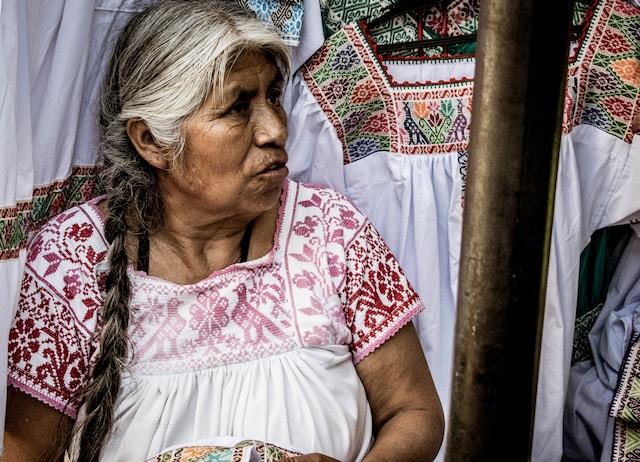What is The Role of Women the Belize Society still face discrimination, and an expert was inquiring if the government planned on joining the Commonwealth Gender Management System.
She also stated it is crucial for female Volunteers to consider how their actions might be misinterpreted by male co-workers; going out for drinks with one colleague might be seen as sexual harassment by them.
The Role of Women in Belizean Society
Gender discrimination continues in Belize, with customs and traditions barring women from accessing opportunities. Furthermore, high poverty levels and a lack of basic services limit women’s participation in society as demonstrated during today’s consideration of Belize’s initial and second periodic reports submitted pursuant to the Convention on Elimination of Discrimination against Women.
Dolores Balderamos Garcia, Minister of Human Development, Women, and Youth in Belize noted the country was multicultural with significant ethnic diversity that affected laws and policies meant to advance gender equality. Although Belize’s Constitution guaranteed equal treatment of men and women, social norms and cultural practices still discriminated against female citizens according to Dolores Balderamos Garcia.
She noted that while female labor force participation had increased, women still earned less on average than their male counterparts and experienced more sexual harassment and domestic violence than men. Furthermore, the Government was working tirelessly to address these issues through policy initiatives as well as non-governmental organizations working on these matters.
She noted the Church’s notable impact in terms of gender attitudes in Belize, where it played a dual role with State education systems; women made up most of the Church membership. Their influence could also be seen through policies and norms related to family planning and protection from HIV/AIDS.
Another pressing concern was the high rate of teenage mothers in the country, despite its right to education for all. Church schools allowed pregnant girls to be expelled and therefore the Government should create more humane policies towards teenage mothers, she suggested. She further recommended joining the Commonwealth Gender Management System which could assist the country with monitoring the implementation of the Convention on Elimination of Discrimination.
Women are enjoying an improved position in Belize, yet the government needs to improve its development planning approach. She advocated for recognising women’s contributions compared to men which often get underrated, as well as creating a national network to spread awareness on issues impacting female Belizeans like sexual and reproductive rights, AIDS, poverty, and sustainable economic livelihoods.
The role of women in the workforce
Gender issues in Belize remain a serious challenge. With such a multiethnic population and differences in customs, traditions, and religions between groups that make up its population, there can be differences in terms of how women’s rights are addressed; their roles within society remain stereotypical despite efforts made by various NGOs and international bodies to change this situation.
Women’s Issues Network in Belize (WIN-Belize) released a report which indicates there are no discriminatory labor laws; however female participation in the workforce stands at only 40% compared to that of men; furthermore women are typically paid much less due to predominantly being employed in informal sectors.
Women are victims of domestic violence and WIN-Belize reports that many can be found living in low socioeconomic status communities where rates of domestic abuse and child abuse are prevalent. Furthermore, they face difficulties finding work and may be subjected to employer exploitation when searching for work opportunities.
The WIN-Belize Report emphasizes the need to address gender issues and alter attitudes toward the role of women in society and economy. While the Belizean Constitution guarantees equal treatment of men and women, many social institutions still maintain chauvinist attitudes; including churches and States. Since church-state relations can influence social norms and values development, ensuring their implementation does not impede human rights in Belize is paramount.
Though Belize lacks legislation against chauvinistic attitudes, some initiatives have been undertaken to safeguard women’s rights. For instance, the government implemented a minimum wage and many non-government organizations campaigned successfully for it. Yet poverty and inequality persist. According to WIN-Belize report findings, development cannot occur without all stakeholders, including women being involved – for this reason alone in 2017, a national plan to achieve gender equity was developed which addresses issues like economic empowerment, education access and accessing justice.
The role of women in the family
Women remain expected to care for children and the household in rural communities, though more likely among Garifuna and Creole groups than Mayans and Mestizos. Furthermore, they often experience higher rates of domestic violence as well as limited access to education.
Women remain over-represented in lower-paying jobs and experience exploitation in the workplace. To address this problem, WIN-Belize has advocated for policies that ensure women receive equal pay as men for similar work done; additionally, this organization advocates for one minimum wage rather than multiple minimum wages depending on job type.
Even with legal equality of the sexes in Belize, customs and traditions still restrict women from accessing resources and opportunities available to them. Women living in rural areas are especially at a disadvantage due to a lack of economic and financial opportunities; additionally, they face discrimination in labor markets as well as limited influence in decision-making processes.
Church-State systems in many countries play an influential role in gender attitudes. Women make up most Church members and this policy allows schools to expel pregnant girls, which was one of the primary factors leading to them leaving school altogether. She expressed concern that an updated policy regarding abortion was required with an emphasis on human rights considerations as being essential.
Although the legal age of consent in India is 16 years, teenage pregnancies remain at high levels and abortion rates continue to climb. She noted that inheritance laws give priority to spouses and children when allocating inheritances; many women do not receive the inheritances that they are owed due to these rules. She called for legislation protecting women’s right to a healthy diet, adequate housing, and health services.
Young mothers are increasingly leaving school due to financial obligations. According to her view, support policies must be developed that comply with the Convention on the Elimination of Discrimination against Women to provide assistance for these girls and offer them appropriate help and protection.
The role of women in politics
Although Belize boasts a multi-party system and regular elections, gender equality does not yet show in its distribution of power. Women still hold less senior positions within public services and remain underrepresented in parliament and other decision-making bodies due to traditional gender roles that assign and honor housewives, mothers, wives who support patriarchy within families. Furthermore, without an official national mechanism monitoring gender issues and discrimination it’s hard to asses progress toward de jure equality.
WIN-Belize is an initiative to address this. Its primary purpose is to encourage the creation of an inclusive society where women have equal opportunities through advocacy, education and capacity building in areas such as economic empowerment, violence against women, sexual reproductive health rights and HIV prevention. Furthermore, WIN-Belize works on increasing female presence in elected office.
One expert explained that while Belize’s Constitution embodies equality and discrimination is clearly defined, she found it hard to comprehend why women make up such a small proportion of parliament and decision-making structures. She expressed particular alarm at sexist stereotypes which affect women’s perception. Furthermore, she asked whether the Convention on Elimination of Discrimination against Women had been widely disseminated, training was provided for them and whether any initiatives planned by government exist to counter gender stereotyping within a diverse population such as her own.
Belizean women are making strides toward de facto equality, yet progress remains slow. Gender-based violence remains a persistent problem – each year police receive over 2,000 reports of domestic violence. To combat this issue, the Women’s Commission provides support to victims as well as partnerships with organizations that advocate gender equality and works on creating a national framework to prevent and respond to domestic violence, emphasizing its role in prevention.




